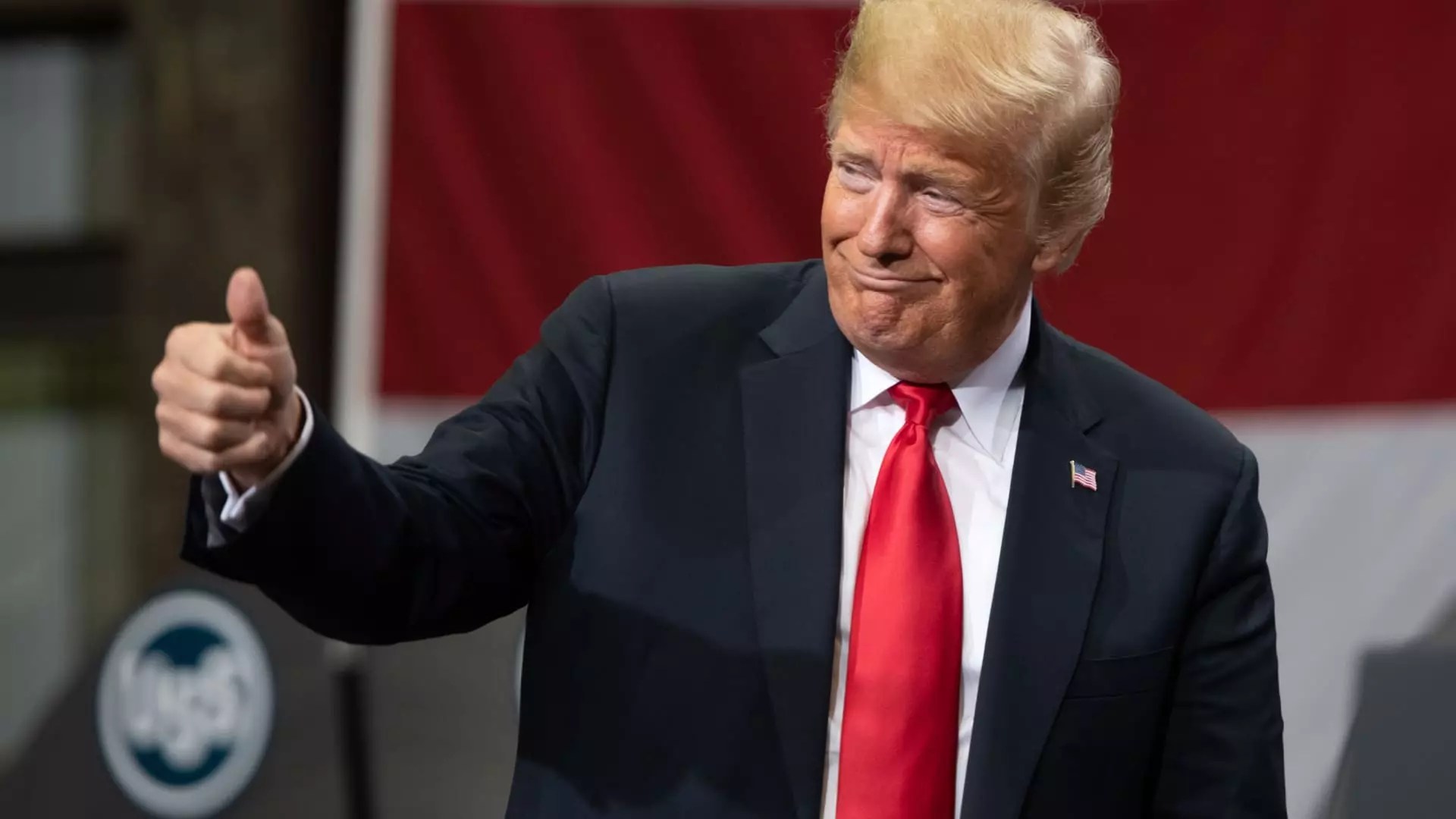The stock market is no stranger to volatility, and recent events underscore just how truly precarious it has become. On an unusually eventful Wednesday, President Donald Trump made a post on Truth Social promptingly heralding a “great time to buy” stocks, just before he announced a reversal on certain tariffs that had previously sent markets spiraling downward. For those investors who rushed in to heed his advice, the day saw a hefty spike in major stock indices, with some savvy traders making quick profits just hours later. However, while this may appear to be a win for those who followed the President’s whims, it raises underlying concerns about the integrity of decision-making in the investing landscape.
Trump’s Influence: Blessing or Curse?
There is no denying the power of Trump’s platform when it comes to influencing market behavior. The immediate reaction of stocks climbing post-announcement seemed like a mirage to many seasoned investors. Yes, those who jumped on Trump’s tweet at 9:37 AM ET to buy stocks could have seen substantial gains, but the broader implications for financial markets are more troubling than they might seem. His self-serving rhetoric hints at a troubling precedent—where political messaging can steer market instruments more profoundly than economic realities dictate. Are we now to live in a world where investors must monitor politicians like stock tickers, watching for the next tweet that could either make or break their portfolios?
A Question of Ethics
The tantalizing allure of quick gains fosters an unsettling ethical dilemma: is it prudent or ethical to trade based on political cues? Critics might argue that this creates an uneven playing field where information isn’t equally accessible. For instance, many retail investors on platforms like WallStreetBets may feel motivated to invest in stocks off a tweet, but customized insights, market projections, and analytics often elude those less entrenched in financial networks. When politicians intermingle their businesses and public messaging, it inevitably raises the specter of insider trading. Trump’s post didn’t just prompt a market pivot—it potentially manipulated investor sentiment. Can we genuinely call this a free market when decisions are driven by political antics rather than sound analysis?
Market Manipulation in Disguise
The fervent reactions on social media platforms following Trump’s proclamations echo concerns of market manipulation. Many users on forums like Reddit questioned the legitimacy of Trump’s actions, with one even proclaiming his investment foresight a display of “psychic” ability. However, the risks loom larger than just heightened profits. There are whispers of market manipulation when a sitting president using social media platforms encourages rapid buying and selling. When those moves translate into real money, the actions resemble manipulation more than investment strategy. With the markets increasingly intertwined with political discourse, we must ponder if this signifies the dawn of a new era of crony capitalism: where wealth becomes a byproduct of political connections rather than astute financial acumen.
The Illusion of Stability
Contrary to the façade of rapid gains following Trump’s call for stock purchases, the underlying reality is fraught with uncertainty. After soaring to record highs as a direct result of politically infused market movements, stocks are still under substantial pressure compared to previous benchmarks. The S&P 500’s sudden spike, in context, is merely a temporary uptick rather than a signal of robust health. Long-term investors ought to tread carefully; relying on political knights in shining armor can often lead to bleak defeats.
A Road Ahead That Demands Caution
Investors should grapple with the risks surrounding politically charged trading. With financial markets increasingly viewing transient political statements as gospel, market principles appear compromised. While it may be tempting to coalesce around opportunistic trading based on what Trump or any other political figure declares, the long-term implications should not be overlooked. It’s crucial to refocus on sound financial analysis and set proactive goals rather than succumb to whims inspired by political figures. After all, true financial freedom comes not from hasty decisions born out of impulsive fervor but from informed choices that await the inauguration of true market stability.


Leave a Reply